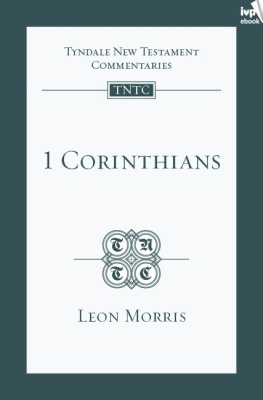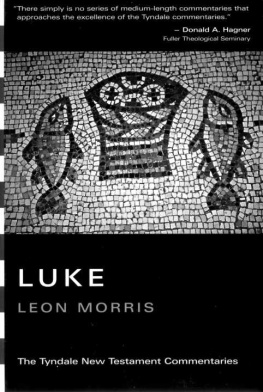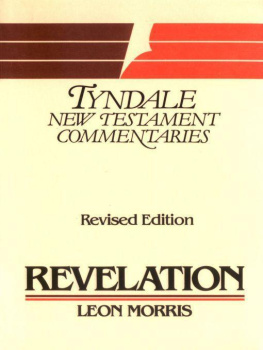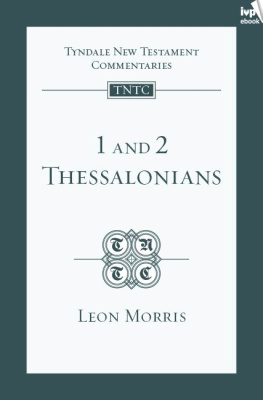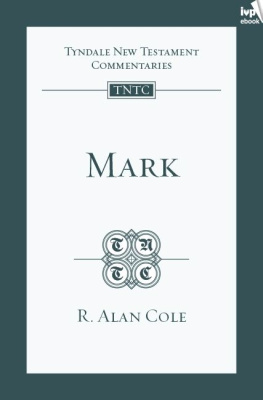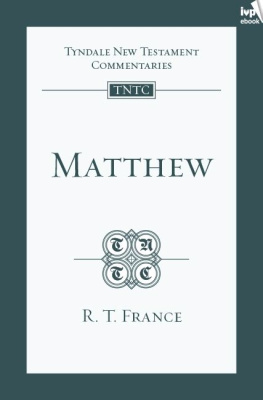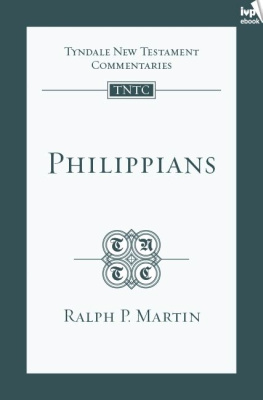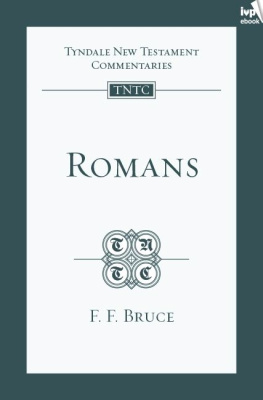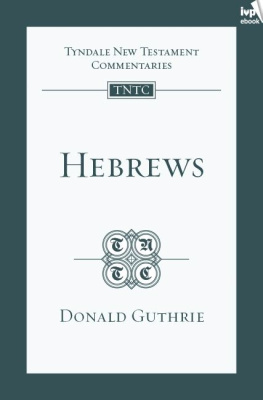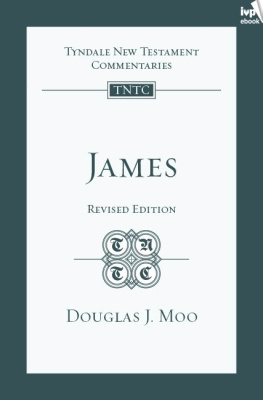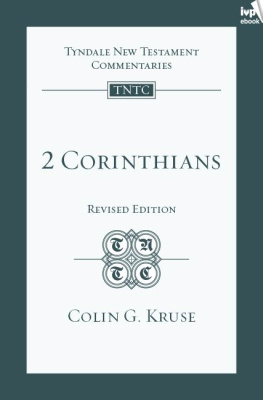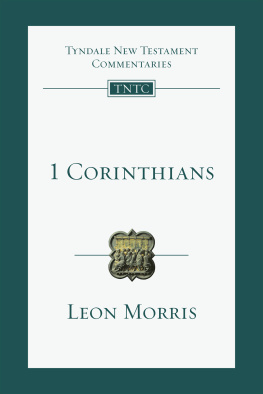Leon Morris - 1 Corinthians (TNTC)
Here you can read online Leon Morris - 1 Corinthians (TNTC) full text of the book (entire story) in english for free. Download pdf and epub, get meaning, cover and reviews about this ebook. year: 2008, publisher: IVP, genre: Religion. Description of the work, (preface) as well as reviews are available. Best literature library LitArk.com created for fans of good reading and offers a wide selection of genres:
Romance novel
Science fiction
Adventure
Detective
Science
History
Home and family
Prose
Art
Politics
Computer
Non-fiction
Religion
Business
Children
Humor
Choose a favorite category and find really read worthwhile books. Enjoy immersion in the world of imagination, feel the emotions of the characters or learn something new for yourself, make an fascinating discovery.
- Book:1 Corinthians (TNTC)
- Author:
- Publisher:IVP
- Genre:
- Year:2008
- Rating:5 / 5
- Favourites:Add to favourites
- Your mark:
- 100
- 1
- 2
- 3
- 4
- 5
1 Corinthians (TNTC): summary, description and annotation
We offer to read an annotation, description, summary or preface (depends on what the author of the book "1 Corinthians (TNTC)" wrote himself). If you haven't found the necessary information about the book — write in the comments, we will try to find it.
1 Corinthians (TNTC) — read online for free the complete book (whole text) full work
Below is the text of the book, divided by pages. System saving the place of the last page read, allows you to conveniently read the book "1 Corinthians (TNTC)" online for free, without having to search again every time where you left off. Put a bookmark, and you can go to the page where you finished reading at any time.
Font size:
Interval:
Bookmark:
Volume 7
General Editor: Leon Morris
An Introduction and Commentary
Leon Morris
Leon Morris 1985
All rights reserved. This eBook is licenced to the individual who purchased it and may not be reproduced, stored or transmitted, in any form, or by any means, electronic, mechanical, or otherwise, except for the sole, and exclusive use of the licensee, without prior permission of the publisher or the Copyright Licensing Agency.
Unless otherwise stated, quotations from the Bible are from the Revised Standard Version, copyrighted 1952 1971, 1973 by the Division of Christian Education, National Council of the Churches of Christ in the USA, and used by permission.
The diagrams on pp. 128, 129 and 226 are by the American School of Classical Studies, Athens, and are used by permission.
First published 1985
Second edition 1985
Reprinted in this format 2008
ISBN: 9781783593217
Series design: Sally Ormesher
Illustration: Kev Jones

INTER-VARSITY PRESS
Norton Street, Nottingham NG7 3HR, England
Email:
Website: www.ivpbooks.com
Inter-Varsity Press publishes Christian books that are true to the Bible and that communicate the gospel, develop discipleship and strengthen the church for its mission in the world.
Inter-Varsity Press is closely linked with the Universities and Colleges Christian Fellowship, a student movement connecting Christian Unions in universities and colleges throughout Great Britain, and a member movement of the International Fellowship of Evangelical Students. Website: www.uccf.org.uk
The original Tyndale Commentaries aimed at providing help for the general reader of the Bible. They concentrated on the meaning of the text without going into scholarly technicalities. They sought to avoid the extremes of being unduly technical or unhelpfully brief. Most who have used the books agree that there has been a fair measure of success in reaching that aim.
Times, however, change. A series that has served so well for so long is perhaps not quite as relevant as it was when it was first launched. New knowledge has come to light. The discussion of critical questions has moved on. Bible-reading habits have changed. When the original series was commenced it could be presumed that most readers used the Authorized Version and comments were made accordingly, but this situation no longer obtains.
The decision to revise and update the whole series was not reached lightly, but in the end it was thought that this is what is required in the present situation. There are new needs, and they will be better served by new books or by a thorough updating of the old books. The aims of the original series remain. The new commentaries are neither minuscule nor unduly long. They are exegetical rather than homiletic. They do not discuss all the critical questions, but none is written without an awareness of the problems that engage the attention of New Testament scholars. Where it is felt that formal consideration should be given to such questions, they are discussed in the Introduction and sometimes in Additional notes.
But the main thrust of these commentaries is not critical. These books are written to help the non-technical reader understand his Bible better. They do not presume a knowledge of Greek, and all Greek words discussed are transliterated; but the authors have the Greek text before them and their comments are made on the basis of what the originals say. The authors are free to choose their own modern translation, but are asked to bear in mind the variety of translations in current use.
The new series of Tyndale Commentaries goes forth, as the former series did, in the hope that God will graciously use these books to help the general reader to understand as fully and clearly as possible the meaning of the New Testament.
Leon Morris
It is no new observation that the letters of St Paul are not easy reading (2 Pet. 3:15f.), but for him who is prepared to take time and trouble their study is immensely rewarding. Not least is this the case with 1 Corinthians, a letter arising out of the practical difficulties besetting a far-from-ideal first-century Greek church. Here we have a typical Pauline letter. The apostle praises his correspondents for their Christian virtues, and rebukes them roundly for their many failings. He adds to their knowledge with some great passages, notably his discussion of love in chapter 13 and of the resurrection in chapter 15. Whatever he touches he deals with in the light of great Christian principles. He sees things temporal always in the light of things eternal. What he writes has relevance to our own, in many ways very different, needs. He shows us how to take our problems back to the light shed upon them by the great Christian verities. We cannot fail to profit as we ponder his words.
In writing this commentary I have been greatly indebted to very many. Notably is this the case with regard to the commentaries to which I have referred in the notes. I have endeavoured to indicate my many indebtednesses in specific matters, but I have learned more from my predecessors than I can sufficiently acknowledge. I have also found some modern translations very helpful, for what are translations but compressed commentaries?
Finally I would like to express my gratitude to Miss G. Mahar and Miss M. McGregor who very kindly typed the manuscript for me.
Leon Morris
The call for a new edition of this commentary has given me the opportunity of working through the material again, with the help of much that has been written in the years since the first edition appeared. I have been grateful for the commentaries to which I have referred, and especially to those by Barrett and Conzelmann.
The change from the Authorized Version to the New International Version as the base has meant many small alterations, and I have gone further and rewritten the whole. It is essentially the same commentary, though here and there the reader may notice a change of emphasis and even sometimes of opinion.
It may help the general reader if I point out that all cross-references have been checked against the Greek text; a reference to the English translation will not always make this clear. For example, I speak of Pauls calling himself a slave of Christ and refer to Romans 1:1. Now NIV has there a servant of Christ and the English reader may wonder a little about the accuracy of the reference. But servant translates doulos , which means slave. Despite NIV , Paul really did call himself a slave of Christ. It would have taken up a lot of space to make this sort of thing clear on every occasion, so I have often simply given the reference. But, as I have said, on every occasion the reference has been checked against the Greek.
It remains only for me to express the hope that in its new format this commentary will meet a continuing need. And to express my appreciation to Mrs D. Wellington, my former secretary, for her kindness in typing the manuscript so expertly.
Leon Morris
| AS | G. Abbott-Smith, A Manual Greek Lexicon of the New Testament (T. & T. Clark, 1937). |
| AV | The Authorized (or King James) Version. |
| BAGD | A Greek-English Lexicon of the New Testament and Other Early Christian Literature (trans. of W. Bauer, Griechisch-Deutsches Wrterbuch ), ed. by William F. Arndt and F. Wilbur Gingrich; second ed. rev. and augmented by F. W. Danker (University of Chicago Press, 1979). |
Font size:
Interval:
Bookmark:
Similar books «1 Corinthians (TNTC)»
Look at similar books to 1 Corinthians (TNTC). We have selected literature similar in name and meaning in the hope of providing readers with more options to find new, interesting, not yet read works.
Discussion, reviews of the book 1 Corinthians (TNTC) and just readers' own opinions. Leave your comments, write what you think about the work, its meaning or the main characters. Specify what exactly you liked and what you didn't like, and why you think so.

